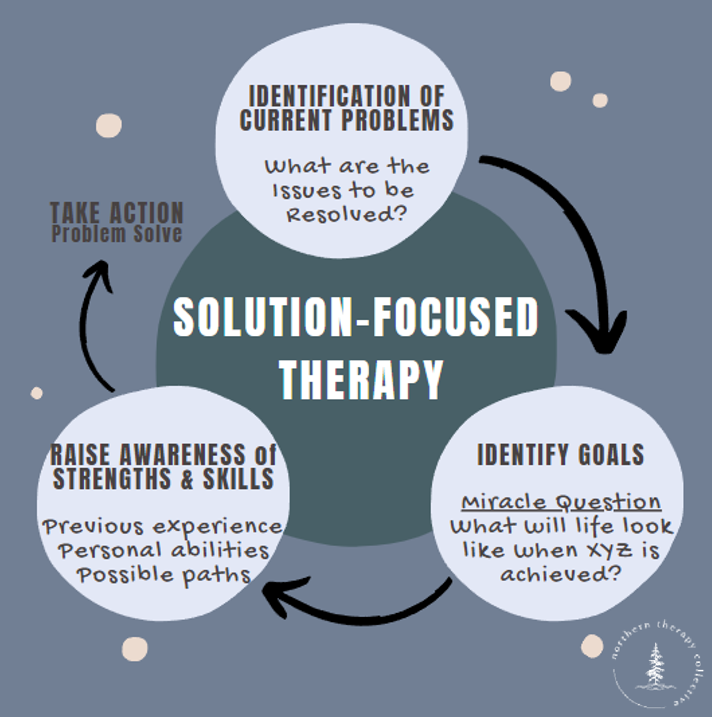SPOTLIGHT ON: Solution-Focused Brief Therapy (SFBT)
As one could probably surmise from the title, Solution-Focused Brief Therapy (or SFBT) is a short-term treatment that focuses primarily on concrete problem-solving and generating solutions to current concerns. The therapy is typically delivered over 1-3 sessions max which has made it an ideal approach in many clinical settings (particularly those where funding is limited). Despite being brief in nature, the SFBT approach is theoretically sound and well supported by scientific research.
MAJOR PLAYERS:
- Steve de Shazer & Insoo Kim Berg (co-founders) – with colleagues at the Milwaukee Brief Family Therapy Centre in the late 1970’s
FOOD FOR THOUGHT:
- “We cannot solve our problems with the same thinking that created them.”
- Albert Einstein
- “Identify your problems but give your power and energy to solutions.”
- Tony Robbins
- “Whatever the problem, be part of the solution. Don’t just sit around raising questions and pointing out obstacles.”
- Tina Fey

DEFINING FEATURES:
- Evidence-based (well supported by psychological research)
- Time-limited (typically delivered over 1-3 sessions)
- Focuses more on the present (current problems/symptoms) and future (practical goals/signs of improvement) as opposed to the past
- The “solution-focused” mindset exists in opposition to a “problem-focused” mindset (means we spend less time thinking about why the problem exists and more time thinking about how to achieve positive change)
- Emphasizes present and future coping (as opposed to ruminations about the past)
- Relies on creative problem-solving and positive psychology (“doing more of what works”)
POSSIBLE INTERVENTIONS:
- Identification of Specific Goals
- “Miracle Questions” (if you woke up tomorrow and all your problems were gone…)
- Scaling Questions (to help contextualize and put into perspective the current issue)
- Raising Awareness of Coping and “Exceptions”
- Validation & Encouragement (What is working now? What has worked in the past?)
- Brainstorming/Generating Solutions
- Concrete Problem Solving
- Breaking Problems Down into Smaller Steps








